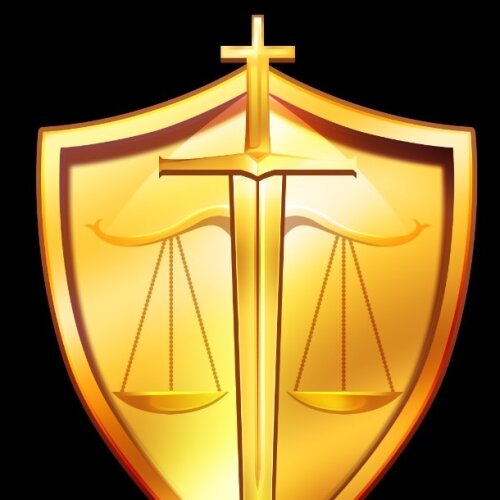Best Faith-Based Law Lawyers in Quezon City
Share your needs with us, get contacted by law firms.
Free. Takes 2 min.
List of the best lawyers in Quezon City, Philippines

Dagsaan Monterde Castillo Law and Notary Public (DMC LAW)
15 minutes Free ConsultationAbout Faith-Based Law in Quezon City, Philippines
Faith-Based Law in Quezon City, Philippines, refers to legal matters that are influenced by religious beliefs and practices. While the Philippines is predominantly Catholic, it is home to various religious groups, each with its own set of beliefs that might impact legal decisions and community practices. In Quezon City, legal issues arising in faith-based communities can range from matrimonial cases, inheritance issues adhering to religious doctrine, to disputes within religious institutions. The Philippine legal system recognizes the importance of religious freedoms while ensuring that secular and religious laws comply with the Constitution and civil laws.
Why You May Need a Lawyer
There are several situations where individuals or organizations may require legal assistance pertaining to Faith-Based Law in Quezon City:
- Marriage and Divorce: Navigating the intricacies of marital law under religious customs can be complex, particularly on issues like annulment in Catholic communities or divorce in other faiths.
- Property and Inheritance: Settling estates or bequests in accordance with religious laws is often intricate and can conflict with civil statutes.
- Religious Institution Disputes: Conflicts within or between religious entities, such as issues of governance, may require legal mediation or litigation.
- Employment within Religious Organizations: Employment disputes involving religious doctrine compliance can require specialized legal oversight.
- Societal Integration: Legal assistance may be needed when integrating religious practices within societal frameworks.
Local Laws Overview
In Quezon City, as elsewhere in the Philippines, local laws adhere to the national framework while taking into account the religious diversity of the population:
- Family Code of the Philippines: Governs marriage, adoption, and inheritance but includes specific provisions respecting religious practices, especially regarding annulment and family rights.
- Religious Freedom Provisions: The Constitution of the Philippines ensures the free exercise and enjoyment of religious profession and worship, which transcends to various legal areas.
- Specific Local Ordinances: Quezon City may have ordinances addressing specific religious practices affecting public life, balancing respect for diverse beliefs with public order and safety.
- Islamic Laws: For the Muslim community, Sharia law applies in personal status issues and is recognized alongside secular law in double-labeled areas like marriage and inheritance.
Frequently Asked Questions
What is Faith-Based Law?
Faith-Based Law incorporates legal principles and rules derived from religious precepts and doctrines applicable in legal matters, such as marriage and inheritance, among others.
Can religious beliefs impact divorce proceedings in Quezon City?
Yes, religious beliefs can significantly impact divorce proceedings, especially when it comes to annulments in Catholic doctrines, which are distinct from civil annulments or separations.
Is inheritance governed by civil or religious law in Quezon City?
Inheritance often follows civil law but can also consider religious practices, particularly in Muslim communities, where Sharia law can regulate the distribution of an estate.
What legal recognition do religions other than Catholicism have?
The Philippine Constitution recognizes and respects all religions equally, allowing them to practice freely, with some specific laws like the Code of Muslim Personal Laws for Muslim Filipinos.
Are religious leaders subject to civil laws?
Yes, religious leaders are subject to civil laws, although there might be considerations of religious doctrine in matters directly impacting their religious duties.
Can religious institutions own property in Quezon City?
Yes, religious organizations can own property, but legal title and taxation are subject to civil laws and regulation by government bodies like the Securities and Exchange Commission.
How does one settle a dispute within a religious institution?
Disputes can be settled through mediation or arbitration, often preferred in religious contexts, or through litigation respecting civil and potentially ecclesiastical law, aligning with the institution's governance model.
What should I do if my job requires adherence to religious doctrine?
Consult a lawyer specializing in employment law to ensure your rights are respected, as employment within religious organizations may have specific conditions aligned with faith principles.
Do local laws accommodate religious customs in business operations?
Local laws generally provide flexibility for accommodating religious customs so long as they don't conflict with public policy, safety, or fundamental rights enshrined in the Constitution.
Can religious practices influence local government policies?
Influence is possible in terms of social policies, but all government policies must adhere strictly to the constitutionally mandated separation of church and state.
Additional Resources
Consider reaching out to the following resources for guidance:
- Integrated Bar of the Philippines (IBP): Offers free legal aid to qualified applicants, including faith-based legal inquiries.
- Department of Justice (DOJ): Oversees concerns relating to religious freedom and its intersection with the law.
- National Commission on Muslim Filipinos (NCMF): Provides guidance on issues related to Sharia law.
- Non-Governmental Organizations (NGOs): Organizations like the Legal Rights and Natural Resources Center may provide resources and legal assistance.
Next Steps
If you need legal assistance in Faith-Based Law in Quezon City:
- Determine the specific legal issue you are facing and gather any relevant documents.
- Consult with a lawyer who has experience in both civil and Faith-Based Law to ensure comprehensive legal support.
- Explore initial legal resources provided by local bar associations or relevant religious organizations.
- Ensure that your legal advisor understands both your legal needs and the specific religious context to provide balanced advice.
Lawzana helps you find the best lawyers and law firms in Quezon City through a curated and pre-screened list of qualified legal professionals. Our platform offers rankings and detailed profiles of attorneys and law firms, allowing you to compare based on practice areas, including Faith-Based Law, experience, and client feedback.
Each profile includes a description of the firm's areas of practice, client reviews, team members and partners, year of establishment, spoken languages, office locations, contact information, social media presence, and any published articles or resources. Most firms on our platform speak English and are experienced in both local and international legal matters.
Get a quote from top-rated law firms in Quezon City, Philippines — quickly, securely, and without unnecessary hassle.
Disclaimer:
The information provided on this page is for general informational purposes only and does not constitute legal advice. While we strive to ensure the accuracy and relevance of the content, legal information may change over time, and interpretations of the law can vary. You should always consult with a qualified legal professional for advice specific to your situation.
We disclaim all liability for actions taken or not taken based on the content of this page. If you believe any information is incorrect or outdated, please contact us, and we will review and update it where appropriate.










